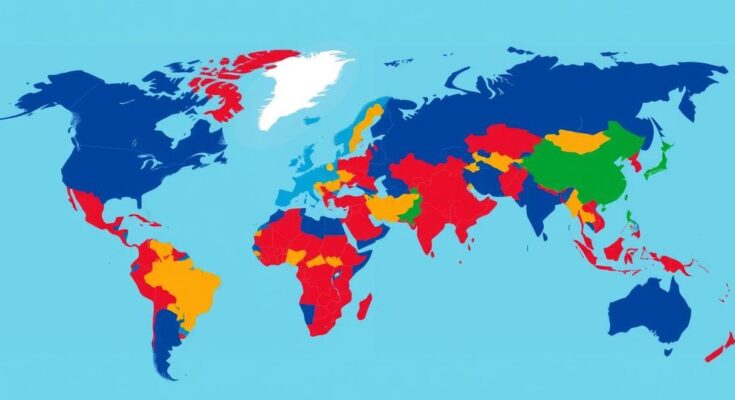The U.S. Department of State issued Level 4 travel advisories for numerous countries, including Russia, Afghanistan, Lebanon, and Venezuela, citing significant safety risks due to crime, political instability, and violence. These advisories reflect rising concerns for American citizens traveling abroad as the spring break season approaches. Travelers are encouraged to remain vigilant, informed, and cautious about their destination choices due to the evolving security landscape.
The U.S. Department of State has recently issued Level 4 travel advisories for numerous countries, including Russia, Jamaica, Colombia, Belarus, Yemen, Syria, and others. These advisories, spanning from Level 3 (Reconsider Travel) to Level 4 (Do Not Travel), are a response to elevated concerns surrounding crime, political instability, gang violence, and potential terrorist activities as the spring break season approaches. This highlights a shift in how these popular tourist destinations are viewed by American travelers.
Traditionally visited for their rich culture, beautiful beaches, and lively atmosphere, these locations now pose significant security risks for both travelers and local populations. Rising violent crime rates, including armed robberies and kidnappings, along with civil unrest in tourist areas, have prompted the U.S. to issue advisories highlighting the potential dangers for American citizens.
The U.S. travel advisory system categorizes destinations into four levels, with Level 4 indicating an extreme risk due to ongoing conflicts or serious safety concerns. This level serves as a stern warning to American citizens against traveling to areas where their safety could be jeopardized.
As of February 2025, several notable countries are under this advisory. Afghanistan remains perilous due to ongoing conflicts and rampant violence from the Taliban, making travel highly hazardous. The Democratic Republic of the Congo has long been afflicted by conflict and unstable conditions, particularly in eastern regions, necessitating strong caution for those who might consider visiting.
Lebanon encounters a combination of political strife, economic collapse, and potential terrorist threats, compelling the U.S. government to advise against travel there. The Central African Republic grapples with ongoing violence from various militias, contributing to significant risks for visitors, further leading to a travel ban.
Belarus is characterized by political repression and unrest, increasing the potential for harassment of U.S. citizens. Iraq, with its residual presence of ISIS, still constitutes a dangerous environment for travelers, urging the U.S. to continue travel restrictions. In Ukraine, the ongoing conflict with Russia has resulted in widespread peril and displacement, further calling for caution.
Venezuela is embroiled in severe political instability and economic crisis, resulting in a high level of violence and crime. Haiti suffers from rampant gang violence, making it highly unsafe for travelers. Lastly, Iran’s stringent political climate poses risks of detentions and safety concerns for foreign nationals.
Despite the evident dangers, certain travelers may still opt to visit these destinations, often unaware of the severity of the situations. It is imperative that individuals remain informed, adhering to recommended safety measures such as checking the U.S. State Department’s travel advisories, enrolling in the Smart Traveler Enrollment Program, and acquiring comprehensive travel insurance.
The travel industry faces considerable impacts due to these advisories, influencing airlines, tour operators, and agencies to adjust their offerings in light of heightened safety concerns. Moreover, certain segments of the travel sector, particularly travel insurance, could see increased demand for coverage related to emergency evacuations and medical care.
In assessing these advisories, the U.S. travel system emphasizes risks linked to crime, political instability, and healthcare service availability. As travelers continue to consider these destinations for spring break, awareness of recent advisories is essential to ensure safe and informed travel planning.
Ultimately, the U.S. citizens planning trips are urged to reflect seriously on the emerging safety challenges in popular travel spots. The issuance of Level 3 and Level 4 advisories emphasizes the critical nature of travel security and the need for careful planning, reinforcing the travel industry’s response to adapt to these shifting safety landscapes. Providers, tourists, and individuals alike must remain vigilant and proactive in ensuring a secure travel experience in the coming months.
In conclusion, the recent issuance of Level 4 travel advisories by the U.S. Department of State highlights significant safety risks in various countries well-known to American travelers. As the spring break season approaches, it is vital for tourists to remain informed and heed the warnings issued. The travel industry is poised to make necessary adjustments in response to these advisories, and travelers must prioritize safety and informed decision-making to ensure secure and enjoyable experiences on their journeys.
Original Source: www.travelandtourworld.com




